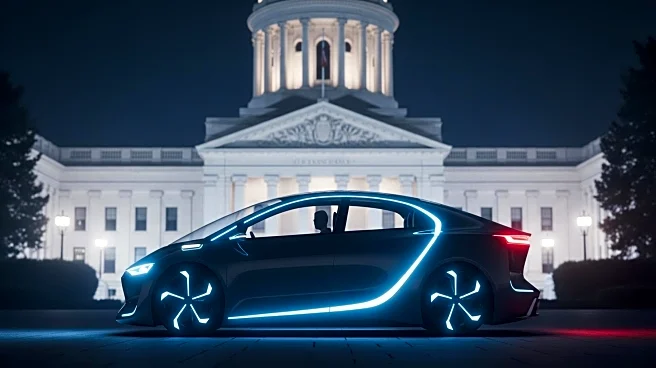What is the story about?
What's Happening?
Pomerantz LLP has filed a class action lawsuit against Tesla, Inc. and certain officers in the United States District Court for the Western District of Texas. The lawsuit is on behalf of individuals and entities that acquired Tesla securities between April 19, 2023, and June 22, 2025. The complaint alleges that Tesla made false and misleading statements regarding its autonomous driving technology, particularly its Robotaxi service. The lawsuit claims Tesla overstated the effectiveness of its technology, leading to potential safety risks and regulatory scrutiny. The filing follows reports of Tesla's Robotaxi violating traffic laws during its launch in Austin, Texas, which resulted in a decline in Tesla's stock price.
Why It's Important?
The class action lawsuit against Tesla highlights significant concerns about the safety and reliability of autonomous driving technology. If the allegations are proven, it could lead to increased regulatory scrutiny and impact Tesla's financial prospects. The lawsuit also underscores the challenges faced by companies in the autonomous vehicle industry, where safety and compliance with traffic laws are paramount. Investors and stakeholders in Tesla may face financial repercussions, and the company's reputation could be affected, influencing consumer trust and market dynamics in the electric vehicle sector.
What's Next?
Tesla may face heightened scrutiny from regulatory bodies such as the U.S. National Highway Traffic Safety Administration, which is already gathering information on the Robotaxi incidents. The outcome of the class action lawsuit could lead to financial penalties and changes in Tesla's operational practices. Investors have until October 4, 2025, to seek appointment as Lead Plaintiff in the class action. The legal proceedings may also influence Tesla's future strategies in deploying autonomous vehicles and its approach to public safety and compliance.
Beyond the Headlines
The lawsuit against Tesla raises broader questions about the ethical and legal responsibilities of companies developing autonomous driving technologies. It highlights the need for robust safety measures and transparent communication with consumers and regulators. The case may set precedents for how similar technologies are regulated and litigated, impacting the future of autonomous vehicles and the legal landscape surrounding them.















